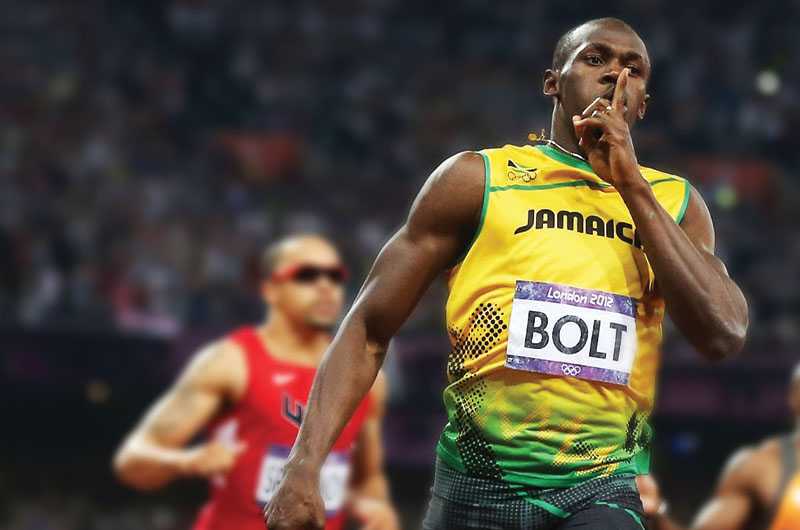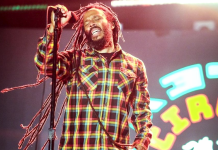
Usain Bolt’s ability to stop a clock quicker than any man who ever reacted to the starter’s pistol for a sprint race made him a global superstar – and a marketing man’s dream.
When Bolt took just 41 strides and a record breaking 9.58 seconds to propel himself along the 100m blue-coloured track, in Berlin, Germany, in 2009, his name was rightly added to an exclusive list of athletes that transcend their sport.
With unrivalled success in any sporting arena it is inevitable that riches will follow. The hard work is not only in earning that money, it is in safeguarding it once that illustrious career reaches its finish line.
For Bolt who hails from humble beginnings, his speed of foot and rapid rise to the top of his chosen sport has made him one of the highest grossing athletes in the world.
He is the fastest man who has ever lived. Bolt earned that title after a bet with his coach, a lighthearted gamble, paid off. Bolt is likely to earn a reported $34.2m this year alone, making him the 23rd highest learning athlete worldwide, according to figures from Forbes.
But that fortune began with early local sponsorship deals worth no more than a few hundred dollars, free cell phones and call credits. “In the early days it was not about chasing sponsors, as we tended to focus on the competitions,” says Norman Peart, Bolt’s business manager.
Despite what may have, to some, looked like a lack of business strategy, Norman believed that Bolt’s raw talent would eventually lead to the kind of sponsorship deals that could earn him a place in the history books. Norman wasn’t wrong.
Bolt’s income has come to derive largely from endorsements as the face of global brands.
As he came to prominence, Puma, one of the largest sportswear brands in the world, and who supported him from the start, handed Bolt a $10 million per year sponsorship deal, until the end of his career.
Bolt’s clean-cut image and his charisma on and off the track have left global companies, such as Virgin Media, clamoring to cash in on his extraordinary rise to the top. By 2016, Bolt’s off-track earnings for the year were a massive $22.4 million.
Other leading sports brands like the PepsiCo subsidiary, Gatorade, were also keen to be affiliated with the fastest man on earth. That privilege clocked up his earnings by $2 – 4 million. In the space of 9 years Usain Bolt became the highest paid athlete in the history of track and field. By 2016, Usain Bolt, age 30 inked another endorsement deal with the Japanese airline company, All Nipon Airways. In total Usain Bolt has charmed over 10 global brand partners.
Sprint Hero
Not only was Bolt’s speed on the track unfathomable, the timing of his entry onto the scene was impeccable. Athletics, especially sprinting, needed a superhero – and it got it – in the shape of a 6ft 5in Jamaican track star wearing a yellow and green vest.
For years, positive drug tests and fears about doping had plagued track and field. Ben Johnson, from Canada, won the 100m at the Seoul Olympics in 1988 in world record time, but was disqualified 48 hours later after a positive drug test.
That final, since labelled ‘The Dirtiest Race in History’, also featured Carl Lewis from the USA, the golden boy of track at the time. Six of the eight finalists, including Lewis, were later implicated in some form of controversy in relation to performance enhancing drugs.
Bolt’s achievements and the fact he had never failed a drug test, have been a blessing for the sport, and helped to clean up its tarnished image. He is the world record holder in the 100m and 200m. He also holds the world record for the rarely run 150m, which he set in Manchester, England, in 2009.
Norman says: “He was doing the 200m and had he continued doing the 200m he would not have the same earning potential he has now.
“He made a bet with the coach and said “let me train.” I think it was to wriggle out of the 200, but it paid off in a major way.”
Bolt took the 100m seriously in 2008. He set the world record in New York in May that year, before breaking it again at the Beijing Olympics two months later.
Norman says; “In ‘08 and ‘09, he broke the world record two years in succession, so pretty much, after that, no one could deny he was the real deal.
“He had the title of the fastest human being on planet earth – that and his brand appeal were the biggest selling points for him.”
Protecting His Earnings
Sport is invariably a young man’s game and when your time is up, typically in your thirties, there is a lot of life still to live.
There’s no doubt brand Bolt will go from strength to strength. Retirement will bring new challenges, including financial ones, and history is littered with ex sportsmen who have made, and then lost, their fortunes.
Former undisputed heavyweight boxing champion, Mike Tyson was declared bankrupt after amassing a reported $400 million from his career. Former NBA star Allen Iverson also found himself in financial trouble despite a reported salary of $21 million the year before his wife filed for divorce.
Adonal Foyle, author of The Athlete CEO is a former NBA player who has written several books on financial management.
He says the most important things, post-playing, are having a formidable support team in place, being informed and being able to ask the right questions. The dangers are tax implications, divorce without a prenup and having children out of wedlock.
Adonal says: “The key is the preservation of wealth. Do not take a lot of unnecessary risks and ‘audit your mamma.’ If you do that people will know how serious you are about money.”
Bolt remains firmly grounded. He has set up the Usain Bolt Foundation, creating opportunities for young people through education and cultural development in Jamaica.
He has donated generously to his community, including funding improvements for his old schools.
Retirement and Beyond
Bolt’s glittering track career came to an end at the August 2017 World Championships, in London. It was an extraordinary career, and you could easily exhaust superlatives in trying to sum it up.
Despite retirement, Bolt is still very much in demand, with top brands eager to associate themselves with him. His latest contract was signed with Mumm Champagne, France, where he has been appointed the new CEO (chief entertainment officer). It is a role that will see him promoting and leading initiatives for the brand throughout the U.S.
Bolt, at the moment, is enjoying a long vacation following his retirement, and when he returns, Norman expects he will take a keen interest in the business side of his career.
There were rumours circulating that Bolt would return to the track, but Norman has ruled that out.
“He’s taking some much-needed time off now,” Norman explains, “but there are big plans ahead. He will work with his foundation, maybe some acting and film cameos, and stuff like that.”
Bolt has made no secret of his love of food and is about to play another hunch. He has become a guest partner and major investor with a local club and restaurant franchise in Jamaica, and is now aiming to expand in the UK. If his business successes off the track are as lucrative as those on it, it’s safe to say brand Bolt will stand the test of time.































